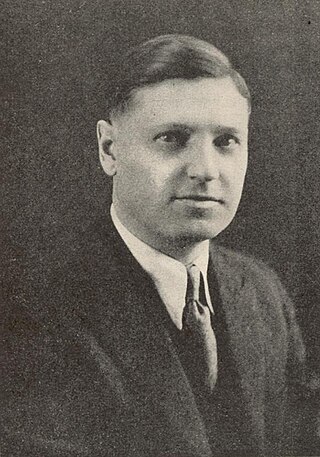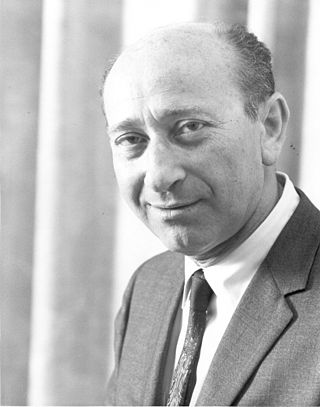
Chalmers University of Technology is a private research university located in Gothenburg, Sweden. Chalmers focuses on engineering and science, but more broadly it also conducts research and offers education in shipping, architecture and management. The university has approximately 3100 employees and 10,000 students.

University of Rovira i Virgili is located in the Catalan cities of Tarragona and Reus, Spain. Its name is in honor of Antoni Rovira i Virgili.

The Norwegian Institute of Technology was a science institute in Trondheim, Norway. It was established in 1910, and existed as an independent technical university for 58 years, after which it was merged into the University of Trondheim as an independent college.

Politehnica University of Bucharest is a technical university in Bucharest, Romania. 200 years of activity have been celebrated lately, as the university was founded in 1818. Politehnica University is classified by the Ministry of Education as an advanced research and education university.
SINTEF, headquartered in Trondheim, Norway, is an independent research organization founded in 1950 that conducts contract research and development projects. SINTEF has 2000 employees from 75 countries and annual revenues of three billion Norwegian kroner. SINTEF has a close partnership with Norwegian University of Science and Technology (NTNU), started in 1950 when SINTEF was founded. SINTEF has expertise in technology, medicine and the social sciences. Alexandra Bech Gjørv is the CEO of SINTEF, preceded by Unni Steinsmo, Morten Loktu and Roar Arntzen.
The Max Planck Institute of Colloids and Interfaces is located in Potsdam-Golm Science Park in Golm, Potsdam, Germany. It was founded in 1990 as a successor of the Institute for Physical Chemistry and for Organic Chemistry, both in Berlin-Adlershof, and for Polymer Chemistry in Teltow. In 1999, it transferred to newly constructed extension facilities in Golm. It is one of 80 institutes in the Max Planck Society (Max-Planck-Gesellschaft).
The SP Technical Research Institute of Sweden, is a joint stock company, fully owned by the Swedish government. It was formerly known as the National Swedish Authority for Testing, Inspection and Metrology, thus the abbreviation SP. The company has its headquarters in Borås and employs 1,000 persons.

The Gubkin Russian State University of Oil and Gas is a public university in Moscow, Russia. The university was founded in 1930 and is named after the geologist Ivan Gubkin. The university is colloquially known as Kerosinka, meaning 'kerosene stove'.
The Electrochemical Society is a learned society based in the United States that supports scientific inquiry in the field of electrochemistry and solid-state science and related technology. The Society membership comprises more than 8,000 scientists and engineers in over 85 countries at all degree levels and in all fields of electrochemistry, solid state science and related technologies. Additional support is provided by institutional members including corporations and laboratories.
John Texter is an American engineer, chemist, and educator. He is professor emeritus of polymer and coating technology at Eastern Michigan University (EMU) in Ypsilanti, Michigan, and managing consultant of Strider Research Corporation (SRC). He is best known for his work in applied dispersion technology, small particle science, and stimuli-responsive polymers based on ionic liquids, for his international conference organization activities, including Particles 2001, Particles 2002, etc., and the Gordon Research Conferences, Chemistry at Interfaces and Chemistry of Supramolecules and Assemblies, and for his editing of the Primers page for nanoparticles.org.
David A. Weitz is a Canadian/American physicist and Mallinckrodt Professor of Physics & Applied Physics at Harvard University. He is the former co-director of the BASF Advanced Research Initiative at Harvard, former co-director of the Harvard Kavli Institute for Bionano Science & Technology (2007-2010), and former director of the Harvard Materials Research Science & Engineering Center (2001-2020). He is known for his work in the areas of diffusing-wave spectroscopy, microrheology, microfluidics, rheology, fluid mechanics, interface and colloid science, colloid chemistry, biophysics, complex fluids, soft condensed matter physics, phase transitions, the study of glass and amorphous solids, liquid crystals, self-assembly, surface-enhanced light scattering, and diffusion-limited aggregation. His laboratory also developed Force spectrum microscopy, which is capable of measuring random intracellular forces. As of June 2023, he has a Hirsch index of 202.
Piero Baglioni is an Italian chemist and University professor at the University of Florence. Baglioni produced several innovations in the field of both inorganic and organic colloids. Baglioni is the author of more than 250 publications on books and largely diffused international journals. He is also the author of 16 patents for the preparation of aqueous suspensions at high concentration of particulate, for the therapy and photodynamic diagnosis of tumors, for the conservation of the cultural heritage, for the setup of a new process for the treatment of textile industrial waste, for production of emulsions from Bio Crude Oil, for production of nanoparticles and novel nano-coatings via flame-spraying, and using homogeneous and heterogeneous solutions.

Elmer Otto Kraemer was an American chemist whose studies and published results materially aided in the transformation of colloid chemistry from a qualitative to a quantitative science. For eleven years, from 1927 to 1938, he was the leader of research chemists studying fundamental and industrial colloid chemistry problems and a peer of Wallace Hume Carothers at the Experimental Station of the E. I. du Pont de Nemours Company where both men contributed to the invention of nylon that was publicly announced on October 27, 1938. The 1953 Nobel Laureate in chemistry, Hermann Staudinger, had a high regard for the American pioneers in polymer chemistry, particularly Kraemer and Carothers
Richard A. Williams OBE FREng FTSE, FRSE is a British academic and engineer. He is the Principal and Vice-Chancellor of Heriot-Watt University. He took up this position on 1 September 2015. He is a chemical engineer. He was Vice President and a Trustee of the Royal Academy of Engineering.

Menachem Lewin, was an Israeli chemist. Lewin worked in polymer, fiber and nanotechnology research. Until his death, a month before his 93rd birthday, Lewin was in charge of a research program at the Polytechnic Institute of New York University. In 2009, he was appointed as editor-in-chief of the Encyclopedia on Fiber science and Engineering, to be published by Wiley in New York. Lewin obtained 29 U.S. and European patents and published 175 peer-reviewed publications. He was the founder (1990) and editor-in-chief of the international monthly journal Polymers for Advanced Technologies (PAT). PAT sponsors international biannual symposia for scientists, and Lewin often served as chairman, co-chairman or honorary chairman.
RISE Research Institutes of Sweden AB (RISE) is a Swedish state-owned research institute that collaborates with universities, industry and the public sector.

The Unilever Research & Development Port Sunlight Laboratory is the multinational consumer goods company Unilever's main research and development facility in the United Kingdom. It is located in Bebington, Merseyside.

Chih-Kung Lee is a Taiwanese mechanical engineer. He received his B.S. degree in civil engineering from National Taiwan University and then obtained his M.S. and Ph.D. degrees from Cornell University, majoring in theoretical & applied mechanics, with a minor in physics. He is known as the inventor of modal sensors and actuators. In the past, he has been an advisor to the Ministry of Education, Ministry of Economic Affairs and various other governmental agencies, as well as the director general of engineering & applied sciences at Taiwan's National Science Council (NSC). Currently, he is the chairman of Industrial Technology Research Institute (ITRI) and Institute for Information Industry (III). He is also a distinguished professor of the Graduate Institute of Electronics Engineering, the Institute of Applied Mechanics (IAM) and the Dept. of Engineering Science & Ocean Engineering at National Taiwan University.
Technical University Leuna-Merseburg was an institution of tertiary education in the city of Merseburg in today's Saxony-Anhalt, Germany. It was founded on 1 September 1954 as Technische Hochschule für Chemie Leuna-Merseburg (THC) and closed on 31 March 1993. Hochschule Merseburg was founded on the grounds of THLM in 1992.

Swedish National Defence Research Institute was a Swedish government agency in defense research existing from 1945 to 31 December 2000. It was amalgamated with the National Aeronautical Research Institute (FFA) into the Swedish Defence Research Agency (FOI) which was established on 1 January 2001.









